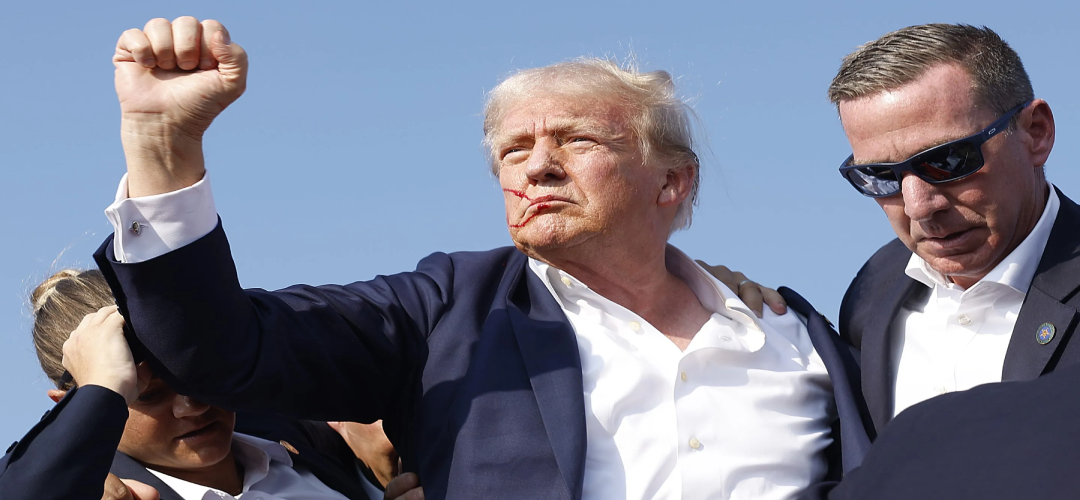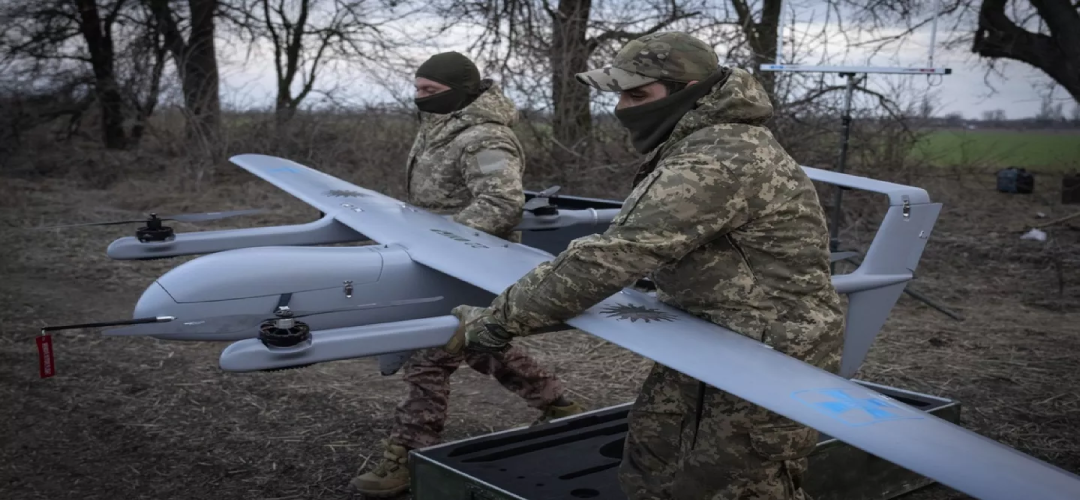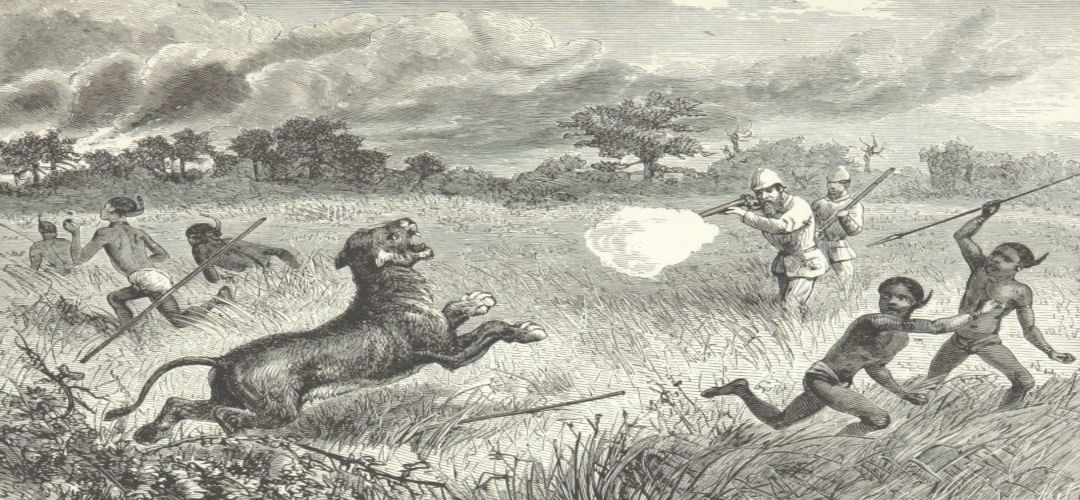A close call from an assassin’s bullet has elevated Mr Trump’s campaign into a near-sure thing.
The recent attack on Donald Trump has sparked a series of consequences that extend well beyond the immediate physical or political impact. As Dick Morris observed on Sunday, “The attempted assassination of Donald Trump has practically ensured his victory in the upcoming November elections.”
Background
It will stand out in the history of remarkable close calls—just a few inches’ difference and Donald Trump might not have survived Saturday’s assassination attempt by 20-year-old Thomas Matthew Crooks. Trump joins the ranks of U.S. presidents, both incumbent and former, who have narrowly escaped assassination attempts, where luck or chance has often been a more significant factor than the efforts of bodyguards or the Secret Service.
Historically, Trump’s presidency has been marked by a series of high-stakes crises, akin to a seasoned general navigating a battlefield fraught with constant threats. From aggressive foreign policy manoeuvres to legal challenges and public controversies, Trump, in his inimitable style, has managed to turn each crisis into an opportunity.
The event brought some relief to embattled President Biden as the ‘Biden Out’ movement appears to have lost steam as attention shifts towards Trump. Predictably, Trump’s approval ratings rose.

Analysis
Trump’s narrow escape has set in motion a cascade of effects reverberating through the American political landscape. An attack on Trump is not merely a personal assault but a profound flashpoint that touches on broader issues of national significance. As Morris suggests, “Trump’s survival and the dramatic nature of the attack have turned him into a symbol of resilience for his supporters.” This event can be expected to galvanise Trump’s base, leading to increased political activism and, potentially, civil unrest. The emotional and symbolic weight of the attack may serve to reinforce his narrative of being a victim of political persecution, which can energise his supporters and heighten their resolve as the election approaches.
Conversely, the attack on Trump can also serve to intensify opposition among his detractors, further deepening the political divide in the country. The very nature of the attack amplifies existing tensions, magnifying the already sharp divisions between Trump’s supporters and his critics. Political commentator Charles Blow notes, “The more intense the attack, the more vehement the responses, amplifying existing divides.” This polarisation can have serious long-term implications for governance. With emotions running high and mutual suspicion increasing, bipartisan cooperation becomes increasingly difficult. The potential for legislative gridlock, a persistent challenge in American politics, could become even more pronounced, stalling critical policy initiatives and undermining effective governance.
An attack on a former president raises significant national security concerns. It exposes vulnerabilities in protecting high-profile political figures and can embolden domestic and international adversaries. The incident necessitates a thorough review of security protocols, potentially leading to increased resources allocated to protect current and former officials.
The political climate has been increasingly polarised and marked by deep divisions and intense rhetoric in recent years. While passionate debate and dissent are healthy components of democracy, they must be conducted within the bounds of respect and civility. When political discourse deteriorates into hatred and violence, it undermines the very fabric of democratic institutions.
Internationally, the attack on a former U.S. president sends a concerning signal. The United States, often seen as a beacon of democracy and stability, may be perceived as vulnerable to political violence. This can undermine its standing on the global stage, affecting diplomatic relations and international collaborations. Allies may express solidarity but also concern over the stability of American democracy, while adversaries might see the event as an opportunity to exploit perceived weaknesses. This shift in perception can have strategic implications, influencing international policy decisions and alliances.
Trump adeptly used divisive issues such as immigration, law and order, and alleged election fraud to rally his base. For instance, during his campaign speeches, he often exaggerated the threats posed by immigrants and painted a dire picture of American cities plagued by crime. This rhetoric was designed to evoke fear and insecurity, which he then framed as reasons to support his strong leadership and re-election. Trump’s presidency was marked by a deliberate effort to polarise the electorate. By intensifying partisan divides and attacking perceived enemies, he worked to consolidate his political base. His approach to crises often involved stoking fears and amplifying grievances, which served to solidify support among his core constituents while alienating potential moderates and opponents.
Trump’s “bullets into ballots” strategy reflects a sophisticated understanding of crisis management in political campaigning. By leveraging moments of conflict and controversy, Trump demonstrated an adeptness at transforming negative situations into opportunities for political gain. His ability to capitalise on violence, legal challenges, and public unrest to further his electoral ambitions underscores a broader trend in modern politics where leaders use crises to consolidate power and influence.
Trump’s success in this strategy reveals a powerful lesson about the role of media, narrative control, and emotional appeals in political campaigns. His approach showed that by reframing conflicts as battles against an overreaching adversary, leaders could survive political turmoil and use it to galvanise their base and drive electoral success. This tactic, however, also highlighted the risks of deepening political divides and undermining democratic institutions for short-term gains.
During his recent RNC acceptance speech, Trump made over 20 false claims on various topics, including the economy and the 2020 election, with both old and new inaccuracies, while other convention speakers also made misleading statements.
Assessment
- As a former president and a polarising figure in American politics, any attack on Trump is not just an attack on an individual but a flashpoint that affects national security, political stability, social cohesion, and the international perception of the United States.
- The U.S. must address the immediate security concerns, manage the political fallout, heal social divisions, and maintain its standing on the global stage. The way forward requires thoughtful and measured responses that prioritise the long-term health and stability of the nation.
- Is the race truly over? Amidst a remarkably dishonest acceptance speech, Trump wooed his Republican supporters. America still holds a vast reservoir of moderate and well-meaning voters who may be motivated to come out and vote to keep Trump out if the provocation is grave enough.




